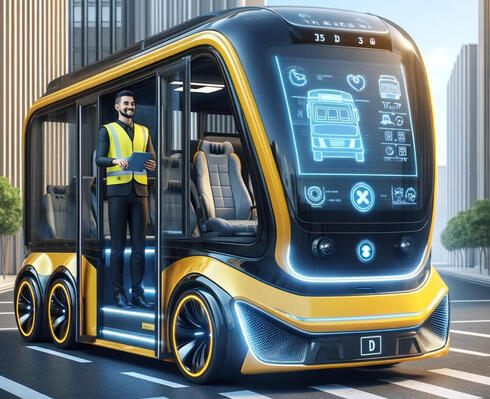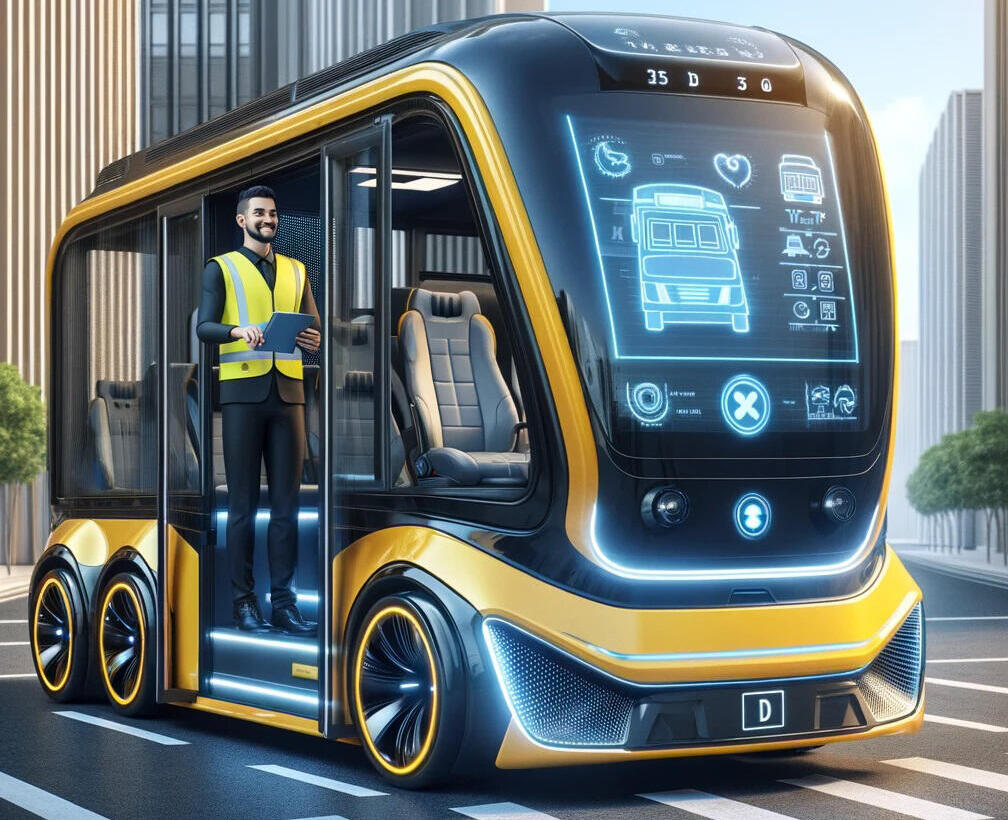
AI is set to replace 10% of employees, but what happens to the rest?
The introduction of artificial intelligence is already changing the labor market, the nature of jobs and the demands on employees. How do you prepare for the changing future and what skills should you cultivate or learn in order to remain relevant
Some 10% of U.S. workers could lose their 3jobs to artificial intelligence, according to a new economic report prepared for the U.S. government. This report joins other reports that warn that the introduction of AI tools will change the labor market in a way that will cause the disappearance of some jobs, a change in the nature of other jobs and, at the same time, also the creation of new positions and professions.
In this reality, when technology develops at a fast pace and when new tools are constantly being developed, what will happen to the remaining 90% of employees, those whose jobs will change? How can you prepare for the changing future and what skills should you cultivate in order to remain relevant?
The new report, which was first published on CNN, discussed the effects of AI on the labor market and found that those 10% of workers are engaged in jobs that are 'highly sensitive' to the effects of artificial intelligence. The report also warned that workers with less education and low incomes are particularly vulnerable. These are workers who perform tasks that are relatively simple and therefore the risk for them is high. The report also stated that 20% of employees are in jobs with 'high exposure' to AI so the nature of their job may change completely following the introduction of the new technologies.
The advisers stressed that while AI may change the nature of some jobs, that doesn't necessarily mean those jobs will be eliminated, as they may still require human supervision or other tasks. They also emphasized that while some jobs will disappear, new jobs will also be created. As an example, they gave a child transportation driver. Artificial intelligence may be able to replace the task of driving, but there will still be a need for a person to supervise the transportation, to ensure the safety of the children when entering and exiting the vehicle and during the trip.
The example of a shuttle driver may not sufficiently take into account the meteoric jump with the introduction of Generative AI tools such as ChatGPT or Midjourney that make creative professions such as graphic designers, content writers or programmers vulnerable.
To decide if a profession is in danger and which professions and skills are also required in a world of generative artificial intelligence, the report ranked the jobs according to their complexity and difficulty. The more complex the job, the smaller the chance that the person will be replaced by a machine. But this is a somewhat simplistic approach. Another way, which Peter Kahn, a founder of a strategy and investment firm, tried, in order to decide which professions are more 'protected' from artificial intelligence, is to give ChatGPT tasks similar to those given to business administration students and see which tasks it performs well and which less so. His conclusion, in an article published in Inc. is that roles that require managerial decision-making are protected. While ChatGPT can provide creative solutions, it cannot yet do calculations or interview customers or employees to make optimal decisions. Artificial intelligence also cannot harness people or raise the capital required to establish or manage a business - yet.
Preparing for the future cannot be based on competition with the machine because technology is constantly advancing and improving. The game is about working alongside and together with the machine. Almost all jobs today require digital skills. "98% of jobs already today require at least one digital skill. Therefore, I think one of the most important skills for employees today is working with AI. There is a quote I like, which has received all kinds of different configurations over the past few years: 'Artificial intelligence will not replace doctors. Doctors who use intelligence Artificial intelligence will replace doctors who do not use artificial intelligence.' If you look at 1948 compared to 2018, during 70 years, 60% of the professions did not exist and were created with the advancement of technology," says Dr. Tomer Simon, the Chief Scientist at Microsoft Israel R&D Center.
The ability to use AI tools at work should streamline work and lead to better outputs. One example of this is that 28% of employees' time is spent searching for information or searching for who knows the information, "This means that almost two days a week, we do not work. If I can now use AI to help me find information, my work will be more productive. We've observed since about 1993, when the use of the Internet began, this promise of digital improvement in productivity, and indeed, there was a decade where there was a significant leap in productivity. But then, in 2022, we saw three quarters in a row where there was a decrease in productivity—both working more and producing less. There are many reasons for this, one of which may be that we have reached the peak of the use of digital technologies. In 2023 and 2024, we see a jump in employee productivity. For the first time in history, we see a double-digit increase, and this is due to the introduction of new AI tools that enable much more efficient work," he says.
For example, at the gaming company Murka Games, they managed to improve productivity by 44% by working with AI tools. "With the establishment of goals for the new year, we declared 2023 as the year of AI in the company and began implementing AI tools in various departments, including creative, UA, product, and others.
"In the creative department, we commenced initial tests with teams on February 23 to understand what could be produced and how. By April, operations were running smoothly: we utilized ChatGPT for concept creation, Midjourney or Stable Diffusion for character design, D-ID for lipsync, Voicemaker for voice creation, alongside exploring other tools.
"In comparison to the number of videos created in the first quarter, we observed a 44% increase in output during the second quarter, which persisted until the end of the year. This increase not only enhanced quantity but also enabled us to create more complex videos that were previously unattainable, resulting in improved user engagement," says Gadi Shoshani, VP Marketing at Murka.
According to Microsoft's Work Trend Index report, 62% of workers say they spend too much time searching for information during their workday and 70% would delegate as much work as possible to AI to reduce the burden. The people in sales, customer service, finance and more are simply drowning in data. They estimate they spend more than a quarter of their workday searching for information and say only half of the information they consume each day is necessary for their work, according to the report.
"Thanks to the power of AI tools today, everyone can be a data analyst, understanding data in natural language and asking questions without needing to know formulas or write them. I believe this frees and empowers far more employees than ever before," says Simon.
In addition to using AI for information retrieval and data analysis, practically every employee today needs to understand the existing tools and how they can impact and streamline their work processes. The advantage of language models is their ability to work with natural language.
"I believe you don't need to take a course or learn prompt engineering to use generative AI tools; you just need to use them. This can help bridge digital divides. With internet access, anyone can use this technology, and the significant democratization happening here is the accessibility of AI not only to data scientists or engineers but to everyone. You can start developing a computer game for children using ChatGPT even without knowing how to write a single line of code. You can take reports from economists analyzing the labor market, input them into a prompt, and ask for explanations in simple language about differences between women and men. It makes previously incomprehensible information accessible, and I believe that's very empowering," says Simon.
In a world where people are measured by skills and changes are happening at the fastest pace in history, perhaps the most important thing is adaptability and flexibility. The ability to learn new skills, to adapt ourselves to the changing reality, and to face powerful and shocking events such as far-reaching technological developments, wars, or epidemics.
The answer to the question of what will happen to the rest of the workers, those whose jobs will not disappear, is that they will have to learn to use AI in their work. This involves optimizing processes, improving products and outputs, as well as enhancing 'soft' and human abilities. Microsoft offers a series of free courses in collaboration with LinkedIn for training in working with AI tools. These courses will be available for free until April 5, 2024. However, Simon suggests that you can also start experimenting on your own. "It's beneficial to begin with a task you enjoy or even one you don't particularly like, to experience firsthand the interaction with GPT or Copilot in performing this task. I know many employers in Israel are training their employees to use these models. Part of the democratization is that you don't need a bachelor's degree or extensive training to use these tools. Just spending an hour with such a model can yield significant benefits," says Simon.















